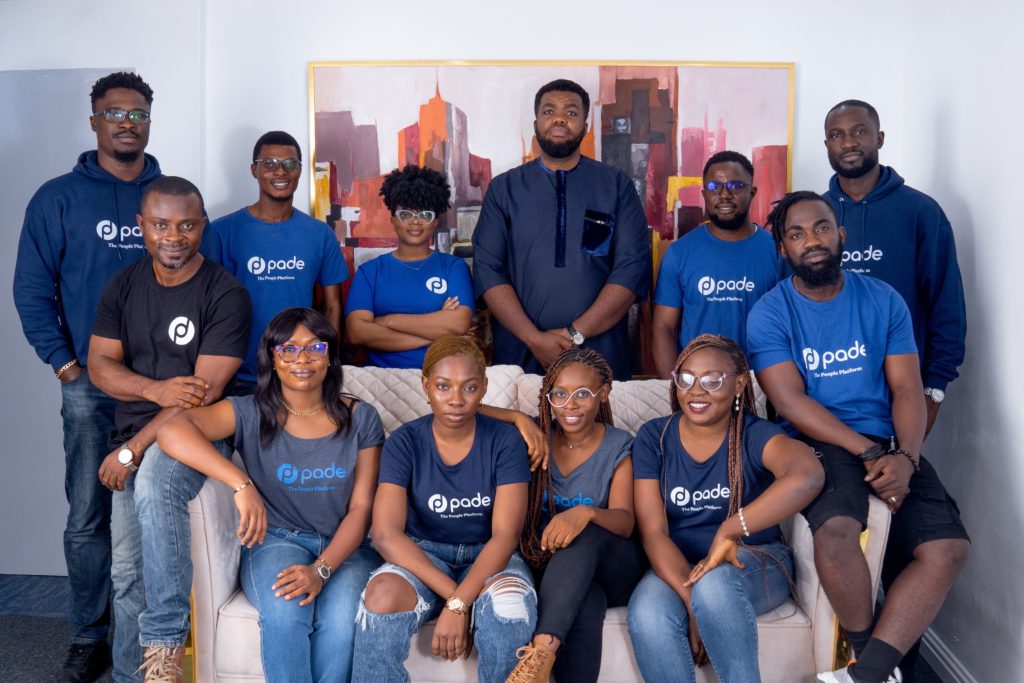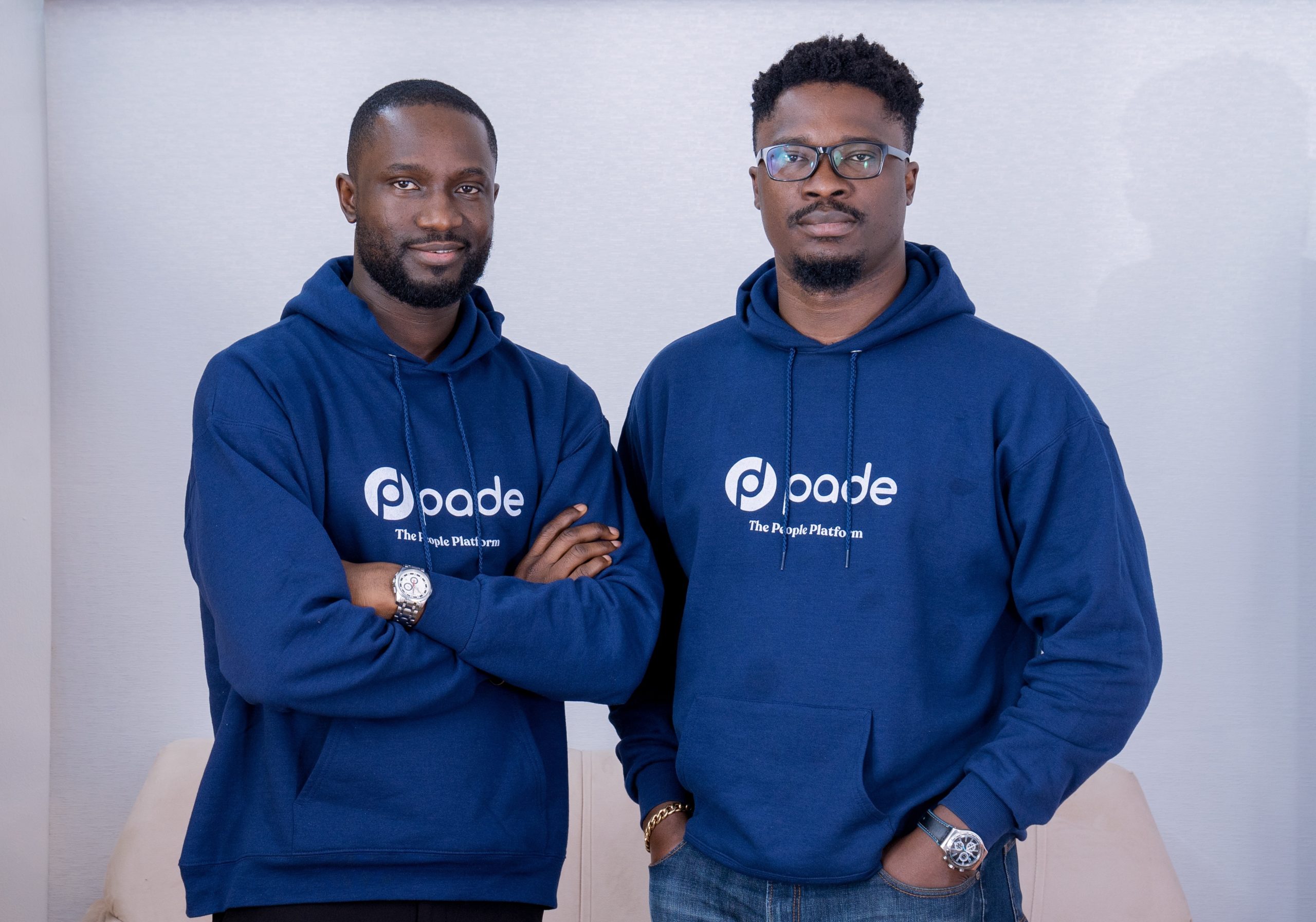When Lekan Omotoso and Seye Bandele met 11 years ago in Nigeria’s capital city, Abuja, they could not have guessed that they’d attempt to solve a $24-billion problem through Pade HCM, the HR tech startup they would go on to co-found.
In 2012, they worked together on government-commissioned technology projects, Omotoso as an engineer and Bandele as an analyst. They lost touch for a while and reunited years later when Bandele started thinking about how technology could solve an employee engagement problem he’d observed while working for businesses of different sizes. “Current employees at companies often work in isolation, focusing solely on their individual tasks. Meanwhile, new hires struggle to navigate the abundance of information about the company [such as its hierarchy, performance evaluation system, tools, and culture],” Bandele said on a call with TechCabal.
HR professionals have asserted that they are short on the capacity to focus on high-value tasks and build strong employee connections due to repetitive and time-consuming onboarding tasks like filling forms, sending reminders, payroll, and more. HR technology automates these tasks, freeing up HR professionals to focus on more strategic activities.
Bandele told TechCabal that there were HR tech providers in Nigeria, but at the time, they mostly served big corporations like FMCGs. “They were relatively expensive for SMEs, and sometimes couldn’t meet their needs,” Bandele said. He and Omotoso saw an opportunity to make a more affordable HR technology and seized it.
A 7-digit stroke of luck
The two-person team, with Omotosho handling the software development and Bandele on the business and marketing front, spent 18 months developing Pade, a proprietary solution for streamlined HR management. Pade—a wordplay on paid—doesn’t only perform paperless (multicurrency) payroll functions. It also offers a range of features like custom approval workflows for leave requests, promotions, performance tracking, OKR management, disciplinary management, and custom report building. Pade also provides an employee benefits management solution to manage health insurance, pensions, and other benefits both domestically and internationally.
“Because we didn’t have any resources, our plan was to do something very simple and then expose it to small customers like SMEs, and then use the knowledge to make the product better,” Bandele told TechCabal on a call. However, only four months after Pade went live in August 2020, right after the lockdown when organisations were transitioning to remote or hybrid work environments, they landed a 4 million naira ($8,705) deal with Transport Services Limited (TSL). According to Bandele, the bootstrapped company went on to earn an annual revenue of $100,000 the next year from contracts that kept finding their way to Pade despite the absence of paid advertising. This continued throughout the lockdown, a time that made personnel management a veritable nightmare.
Raising half a million dollars
On Monday, the company announced that it has secured pre-seed funding of $500,000 from Zrosk IML and other investors. Before this investment, the startup had received support from the Microsoft-backed FAST startup accelerator programme, which selected the startup for its first cohort in collaboration with Flapmax. This year, Pade also got into Expert Dojo, an international early-stage startup accelerator that has invested in African startups such as Eden Life, Trade Lenda, VipLink, Aladdin, and others.
Pade’s success reportedly trails across over 19 African countries. The HR tech startup said it has processed ₦3 billion (~$6.5 million) in payroll, managed data for over 10,000 employees and yielded 300% growth from its subscription-based model last year. The CEO Bandele thinks that technology can play a crucial role in overcoming the biggest talent challenges in Africa, but it needs to be combined with human efforts. He notes that employees’ demands are constantly evolving, with many seeking remote work and the best use of their salaries. “To retain talent, employers must adapt to these demands, and technology can help with this,” he said on the call.

Speaking of these demands, several HR tech startups are stepping up to help African businesses meet the evolving needs of their employees. Morocco-based Gwala recently raised a pre-seed round to give more employees real-time access to their salary. EarniPay in Nigeria also makes everyday payday for employees. Gwala received undisclosed funding, while EarniPay secured a $4 million seed funding last year. Before that, Nigeria’s Seamless HR announced a $10 million raise to expand its HR and payroll solutions across Africa, including “employee marketplace”, one of its offerings which offers embedded financial services listed as savings, loans, and investments, on its website. This rings close to what Pade plans to introduce in its upcoming product expansion, which will be financed by Pade’s new pre-seed investment. Pade told TechCabal that it will make additions to the company’s product line that will increase employee satisfaction and standard of living by offering financial services and decision-making information.
With projections that Africa will be a major provider of remote talent in the world, the growth potential for made-in-Africa HR tech solutions like Pade is huge. The pulsating HR tech sector in the US and Southeast Asia lends even more promise to that potential. Last year, the HR tech sector in the US reportedly received an investment worth $12.4 billion from over 440 deals. A number of American HR tech companies have achieved unicorn status, such as Deel, which offers global payments for remote employees, just like Pade does. Despite only launching in 2021, Deel already boasts an annual revenue of $295 million, according to Forbes. “The future looks even brighter and presents a unique opportunity for Africa to not only participate in but lead the way in the digital transformation of HR,” said Bandele.



















